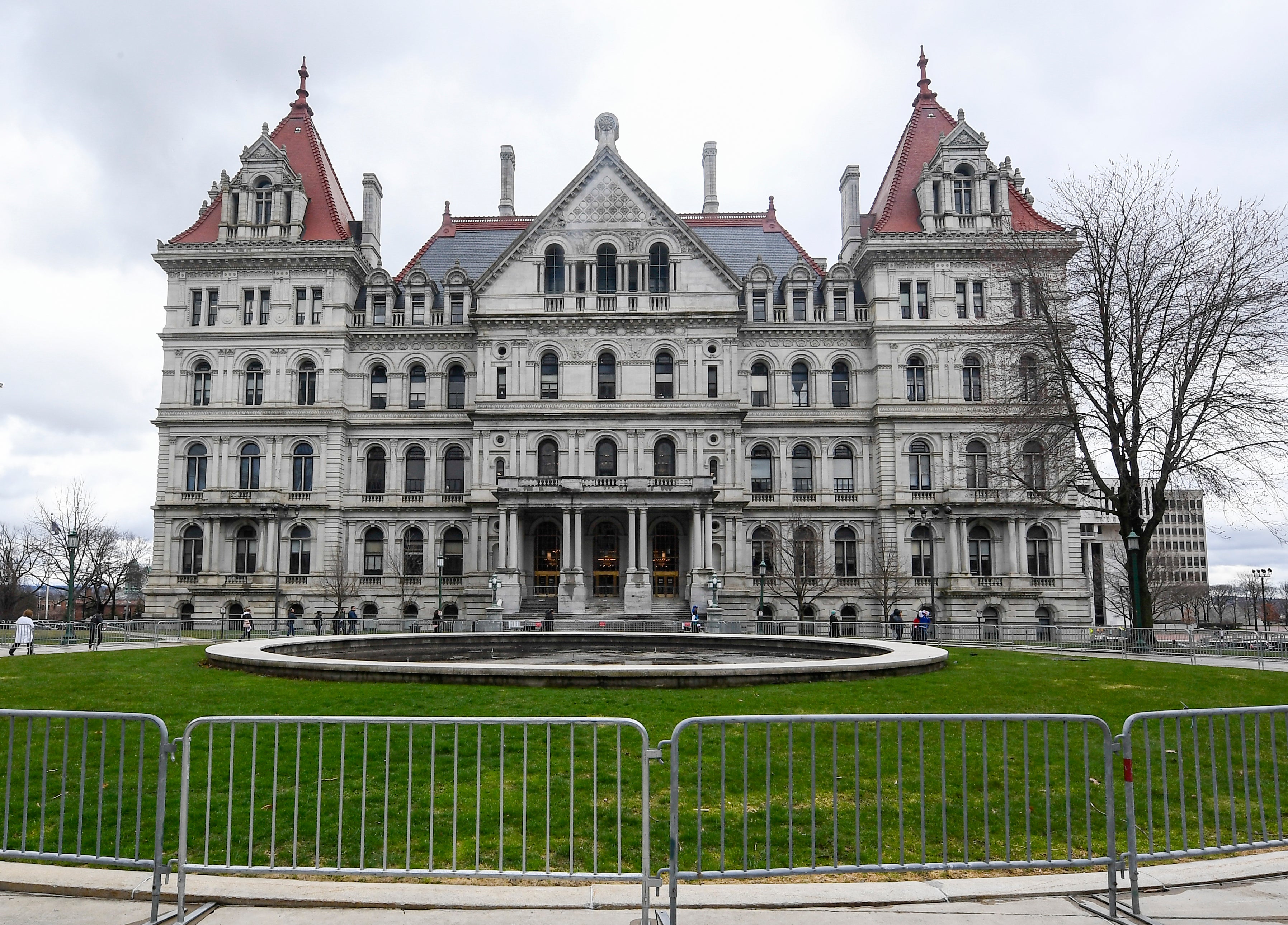Court rules NY Democrats gerrymandered district boundaries
A panel of five mid-level New York appellate judges have ruled that state Democrats engaged in gerrymandering when drawing new congressional district boundaries for the next decade

Your support helps us to tell the story
From reproductive rights to climate change to Big Tech, The Independent is on the ground when the story is developing. Whether it's investigating the financials of Elon Musk's pro-Trump PAC or producing our latest documentary, 'The A Word', which shines a light on the American women fighting for reproductive rights, we know how important it is to parse out the facts from the messaging.
At such a critical moment in US history, we need reporters on the ground. Your donation allows us to keep sending journalists to speak to both sides of the story.
The Independent is trusted by Americans across the entire political spectrum. And unlike many other quality news outlets, we choose not to lock Americans out of our reporting and analysis with paywalls. We believe quality journalism should be available to everyone, paid for by those who can afford it.
Your support makes all the difference.New York state Democrats engaged in gerrymandering when drawing new congressional district boundaries for the next decade, a panel of five mid-level appellate judges ruled Thursday.
In a divided 3-2 ruling, the majority found the congressional map was unconstitutional — a decision that, if upheld, would block the use of those district lines for the upcoming midterm elections in November.
The court found Democratic lawmakers acted within their power to approve the maps, after a bipartisan redistricting commission failed to do so earlier this year. But the judges ruled the 2022 congressional map itself “was drawn to discourage competition and favor Democrats.”
Democrats’ attorneys had argued the maps were fair to Republicans, who lost their decadeslong control of the state Senate in 2018 but have won some swing districts. Democrats said the new maps protect minority voting rights and reflect population loss in upstate communities once considered Republican strongholds.
Republicans represent about 22% of registered New York voters, and currently hold eight of the state’s 27 seats in Congress. But New York now gets one less seat following the 2020 Census, and the new maps would have given Democrats a strong majority of registered voters in 22 of the state’s 26 congressional districts.
The GOP lawsuit cited computer simulations by election analyst Sean Trende, who found the maps were gerrymandered.
The court relied on that analysis in its ruling.
“Trende was accepted by the parties as an expert in elections analysis with particular knowledge of redistricting. His direct testimony and his expert reports also were received in evidence without objection,” the judges wrote.
Former Republican Congressman John Faso, an advisor to the petitioners who brought the lawsuit, said he's happy with the ruling and said the congressional map was “an egregious, unconstitutional gerrymander.”
Legislative leaders indicated they would appeal the decision to the New York Court of Appeals, the state's highest court.
Mike Murphy, a spokesperson Democratic Senate Leader Andrea Stewart-Cousins, said he was pleased the court affirmed that the Legislature acted within its power to approve the maps.
“The newly-drawn (state) Senate and Assembly maps are now valid," he said. "We always knew this case would end at the Court of Appeals and look forward to being heard on our appeal to uphold the Congressional map as well.”
The Court of Appeals is expected to hear the case soon, potentially by next week.
So far this election cycle, courts have intervened to block maps they found to be Republican gerrymanders in North Carolina, Ohio and Pennsylvania, and a Democratic gerrymander in Maryland. Such decisions have led to delayed primaries in North Carolina, Ohio and Maryland.